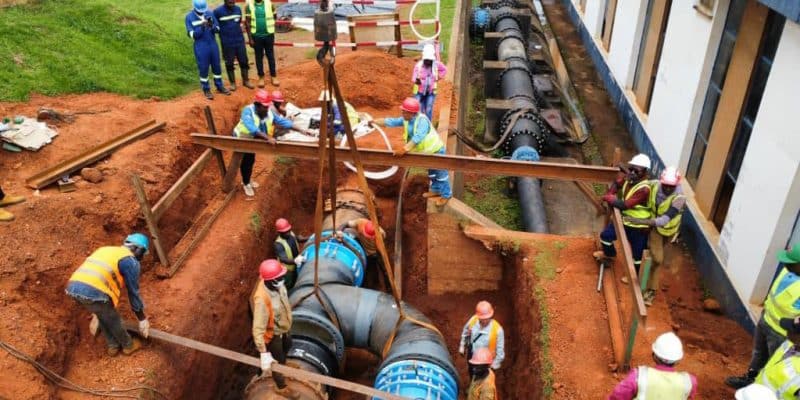In Cameroon, the government will allocate 1,200 billion CFA francs (more than €1.8 billion) to ongoing water and sanitation projects, including the Drinking Water Supply Project for Nine Towns (PAEP). These funds will be released as part of the country's new 2023-2027 Five-Year Priority Investment Programme (PPQI).
Given the urgent need for drinking water supply and access to sanitation in Cameroon, the government plans to increase funding for drinking water and sanitation. On 23 September 2023, the state-owned Cameroon Water Utilities Corporation (Camwater) launched the 2023-2027 Five-Year Priority Investment Programme (PPQI), which will inject up to 1,200 billion CFA francs (more than €1.8 billion) into the portfolio allocated to development in this sector.
The aim is to accelerate the implementation of various projects with a view to achieving an access rate for drinking water of 80% by 2032 in accordance with Cameroon’s Water Supply Master Plan. The 2018 report by the National Institute of Statistics (INS) estimates the rate of access to drinking water in urban areas at 77%, and 45% in rural areas. According to the same source, the rate of access to sanitation was estimated at 34% in the same year.
The drinking water supply project for nine towns (PAEP) will undoubtedly benefit from the PPQI. Its second phase was launched on 28 August in Garoua-Boulaï, in the Lom-et-Djerem department of the East region. The additional funding allocated to this project will enable the construction of a new drinking water plant in Maroua, in the Far North region. “The future plant will have a capacity of 13,000 m3 per day, increasing the city’s production capacity to 25,480 m3 per day from the current 12,480 m3,” says Camwater.
Read Also –
The PPQI investment programme will also enable the rehabilitation and extension of the water distribution network in several of the country’s cities, including Yaoundé, Douala, Bafoussam and Kribi, as well as the construction of new sanitation systems in rural areas of Cameroon.
Inès Magoum






